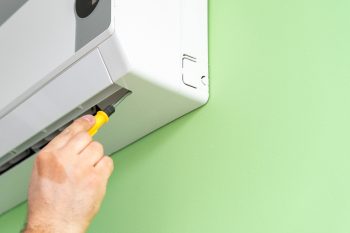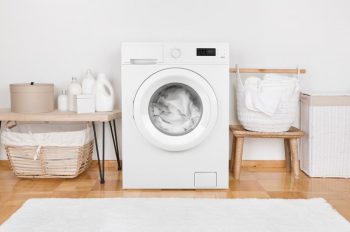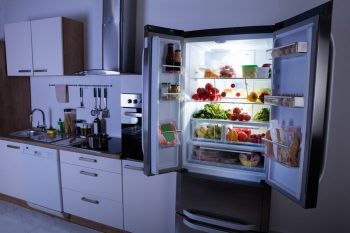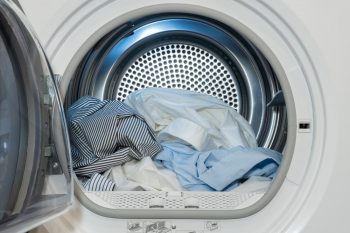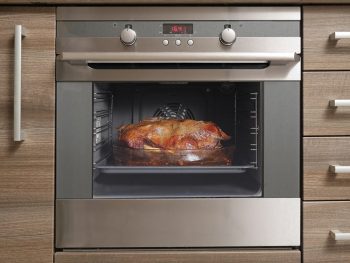
Gone were the days when you’d have to manually defrost a refrigerator. These days, modern refrigerators have an auto-defrost feature that prevents frost and ice from forming inside.
That means you won’t have to deal with the hassle of defrosting your fridge and cleaning up the puddles left in its wake.
However, one day, your newfangled fridge starts leaking. It’s not normal for modern fridge models to leak because they’re designed to have internal systems that prevent that from happening.
So what could cause a fridge to leak water?
Always check the manual before you try any DIY repair. Here are a few possible reasons why a fridge leaks:
- Blocked ducts and lines may cause backed-up water to leak onto the floor.
- Improper balancing can restrict coolant flow and cause condensation buildup.
- Faulty door seals may impair temperature regulation, producing leaks that drip from the door cracks.
- A faulty evaporator fan motor will struggle to keep your fridge cool, causing meltwater to leak.
There’s more than one reason why your fridge leaks water. From blocked water lines to damaged drain pan, it’s essential to isolate the issue so you can perform the necessary repairs to resolve the problem.
Reasons Why Your Fridge Leaks Water
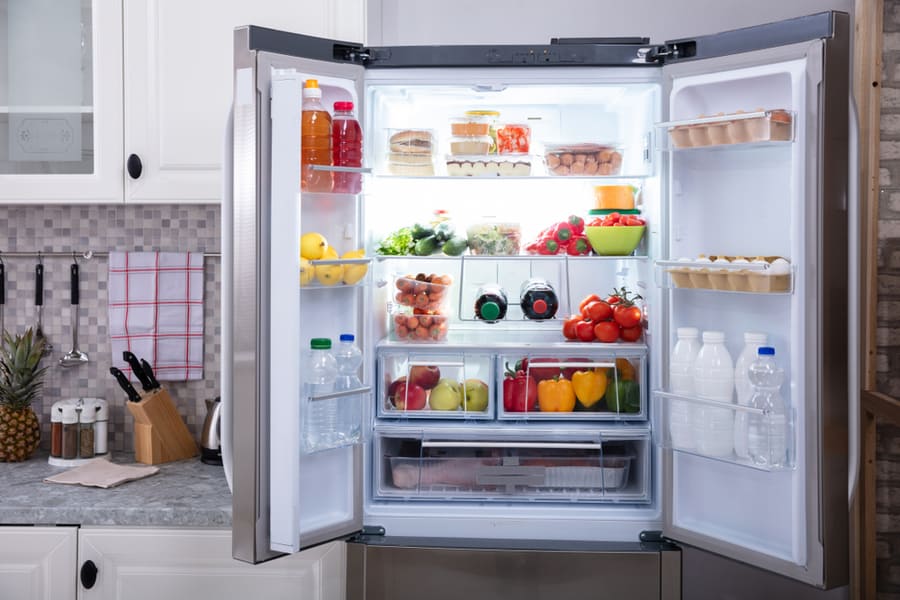
Refrigerators are expensive. Although you might be able to pinpoint a potential problem that causes a water leak, it’s not always recommended to solve the problem alone.
If a bit of food or frost gets stuck somewhere and you can clean it out to restore proper functioning, then go ahead and do it.
But if the situation calls for more expertise, don’t hesitate to call a professional.
The manufacturer often provides a list of common issues in the manual. Before tackling the problem, read the instructions for troubleshooting tactics you can try at home.
1. A Blocked Water Duct
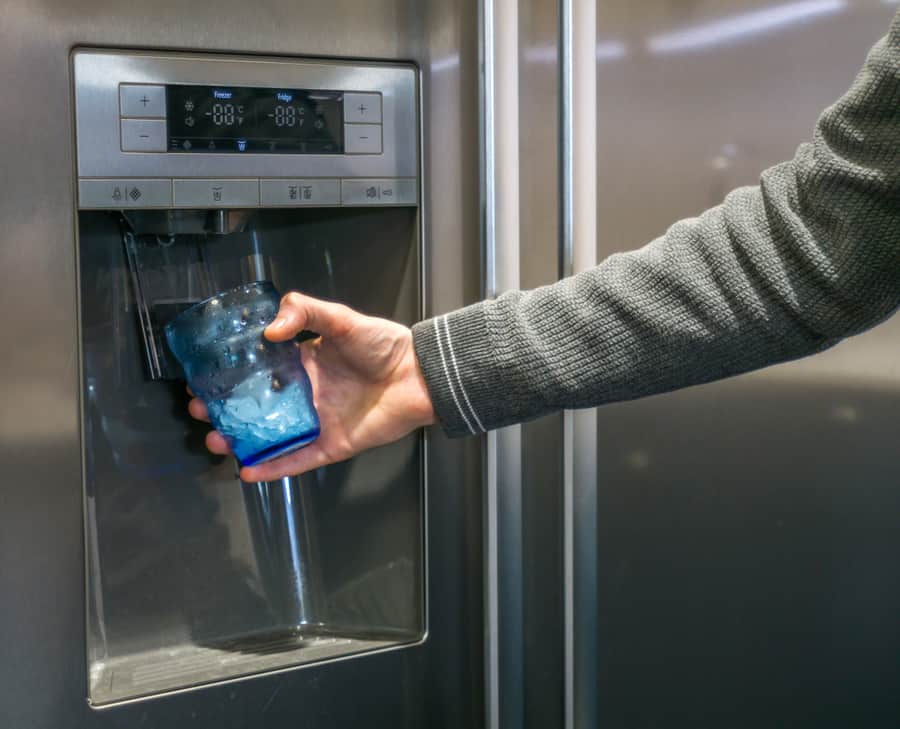
Some refrigerator models have a water duct or hose that feeds water into a dispenser on the fridge door. These water lines also provide water to the ice maker if your fridge has one.
In some cases, the water line may become clogged with mineral debris or ice. When this happens, the duct will leak water under or behind the fridge.
You’ll either have to remove the hose and clean it or replace it entirely if it’s damaged.
2. A Clogged Defrost Drain
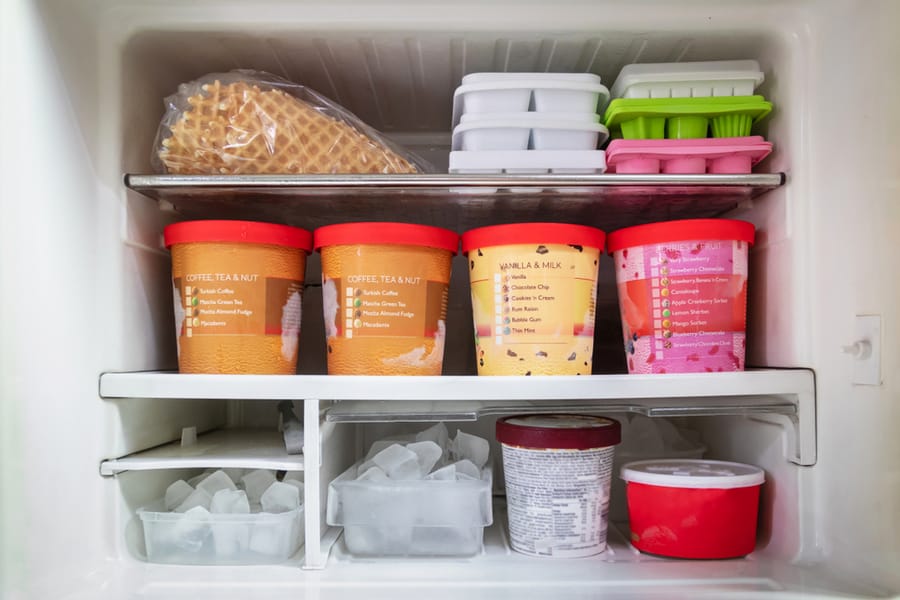
The defrost drain prevents frost and ice buildup from accumulating in the freezer. Things like food particles can fall into the drain and cause a blockage.
The same goes for ice that remains frozen. When this happens, the drain becomes backed up, and melted ice has nowhere to go, thus causing a leak.
To resolve the issue, you can take some warm water and inject it into the defrost drain using a dropper.
If the blockage is close to the drain’s entry, you can use a wire or a cleaning pipe to unclog the drain.
If the blockage is too far down, you have to take the assembly apart.
3. Improper Balancing
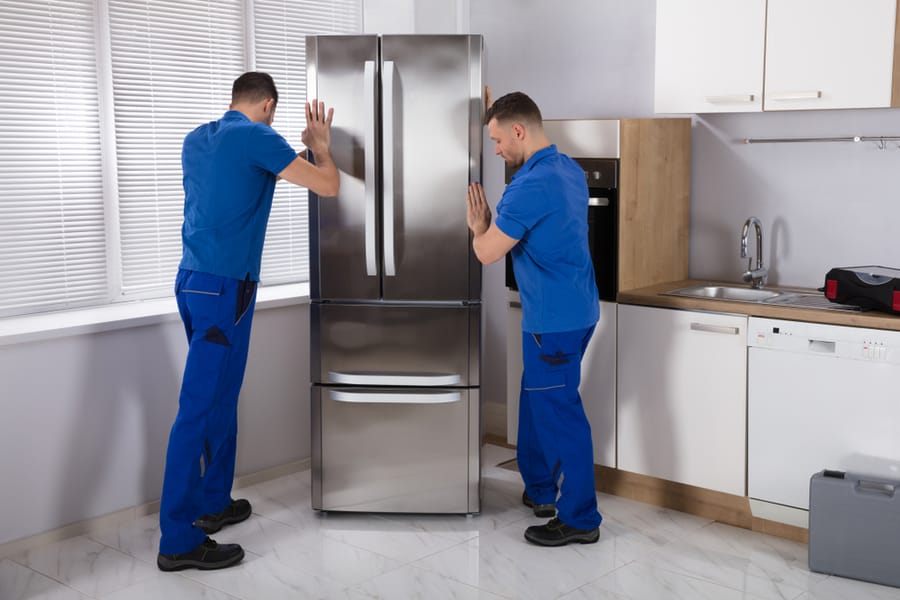
Experts recommend keeping the front of the fridge slightly higher than the back to make sure that the coolant moves efficiently through the system.
If the fridge isn’t properly balanced, the coolant might fail to travel through the inner workings of the refrigerator, causing condensation to form and pool underneath the unit.
If you notice that your fridge leaks water after delivery or moving it around in your kitchen, it might be a balance issue.
Read the manual to find out how to position your fridge for efficient coolant circulation.
4. Faulty Door Seals
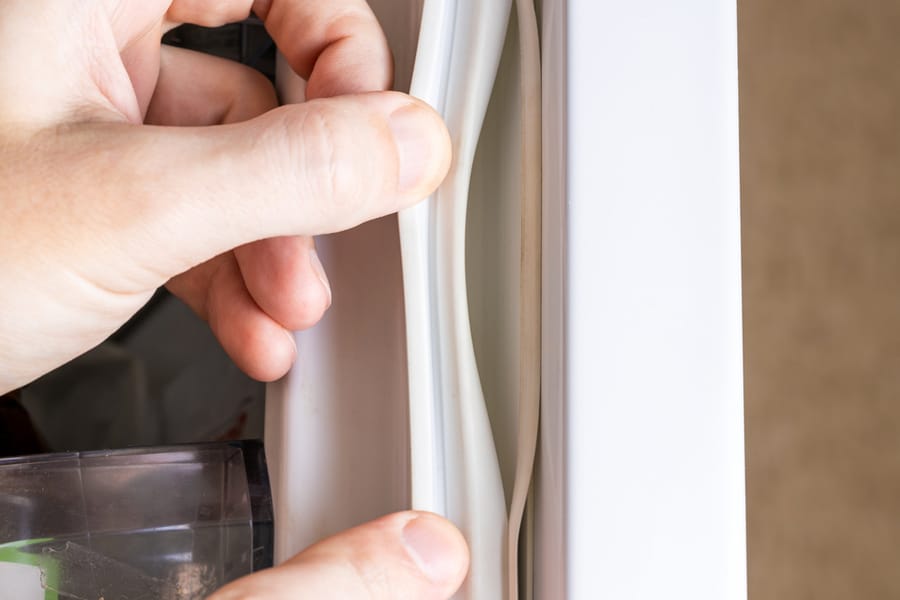
Your refrigerator doors are designed to seal tight when you shut them. This guarantees that the fridge’s inside reaches the set temperature to keep your food fresh or frozen.
When the seal is damaged, the fridge will struggle to maintain the ideal temperature.
When this happens, condensation might result from a sudden temperature rise. The condensation could leak out of the crack in the door seal and drip on the floor.
If the door seals and gaskets have breaks, cracks, or tears, it might be necessary to have them replaced by a professional.
5. Broken Evaporator Fan Motor
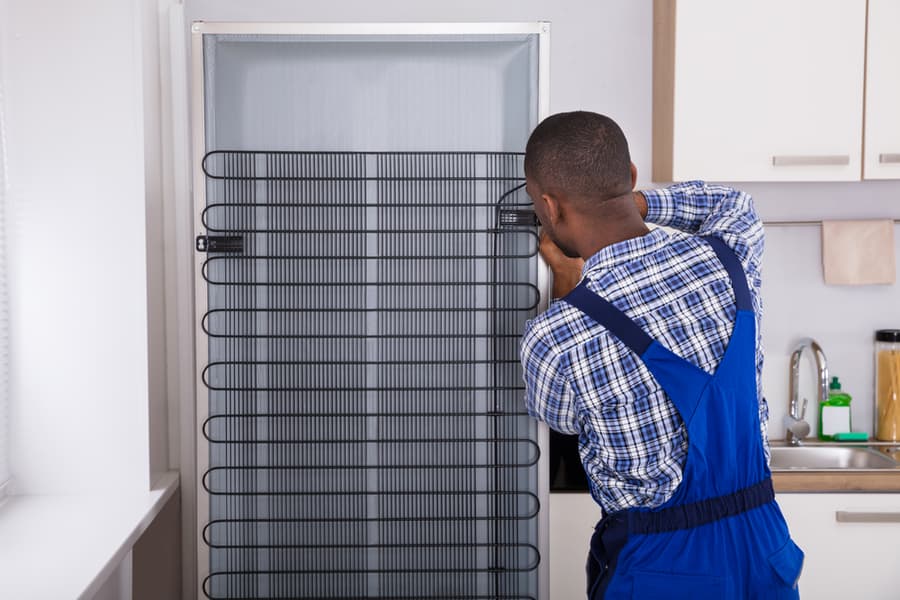
The evaporator fan motor is an important part of fridge anatomy. Its main purpose is to draw in cold air from the coils to remove heat.
Essentially, the evaporator fan motor brings the cold air into the fridge and freezer compartments, ensuring that the interiors achieve the ideal temperature.
A broken or faulty evaporator fan motor will cause issues concerning keeping your fridge and freezer cold.
As the fan fails to dissipate heat, the coils behind the fridge could produce condensate, which will then drip to the floor.
If you suspect your evaporator fan motor is the culprit, you might have to call in a professional.
Conclusion
It’s not normal for modern refrigerators to leak water because of their sophisticated defrosting and draining systems. So if your fridge suddenly starts leaking, there’s something wrong inside.
Consider the common reasons for a fridge leaking water and try our troubleshooting tips. But if all else fails, don’t hesitate to call in a professional to protect your valuable appliance from further damage and complications.
Frequently Asked Questions
How Much Does It Cost To Unclog a Refrigerator Drain?
Sometimes, all you need is a pipe cleaner and some warm water. Many Youtube tutorials explore how to unclog a fridge drain on your own.
But if the clog is too severe or too far down the line, you must call in an expert. Most of the time, the service will range from $100 to $450.
Why Is My Fridge Leaking Water Inside?
It’s possible to find a pool of water inside your fridge instead of outside on the floor. When this happens, the drainage hole that leads meltwater out of your fridge into the drain pan may be clogged.
Cleaning it out with warm water and removing any buildup or residue should allow any water to flow freely to where it’s supposed to go.

